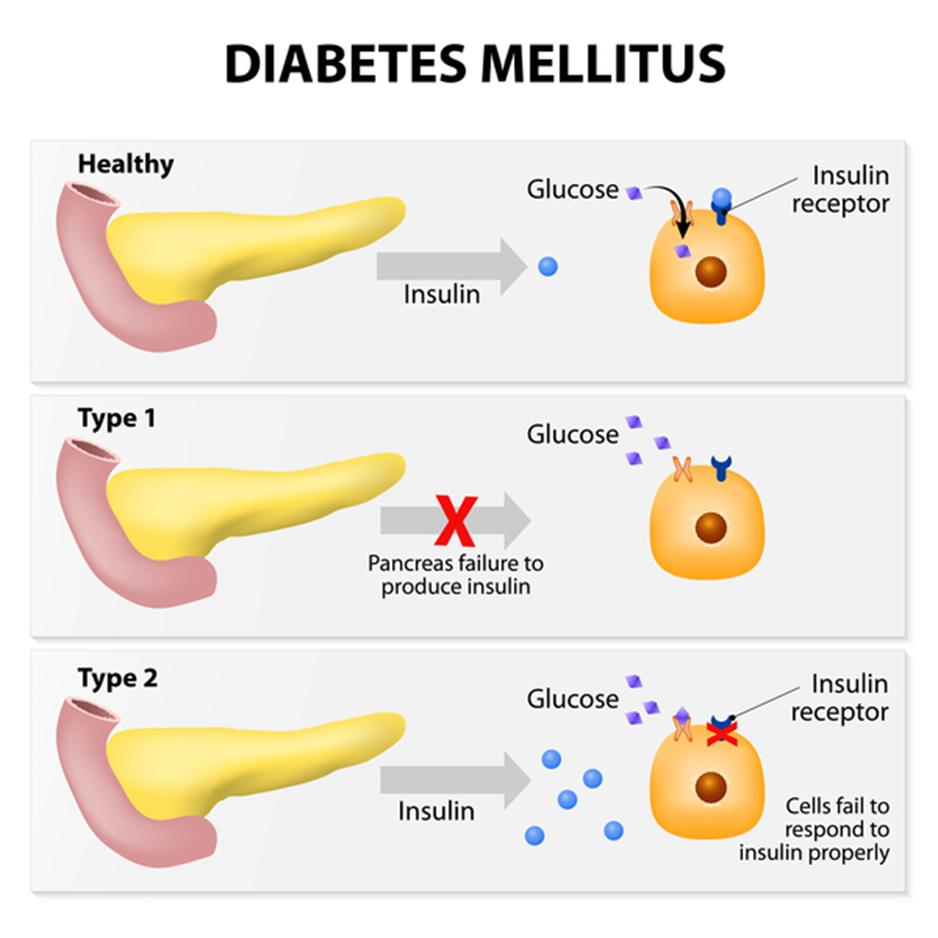A nurse is providing teaching to a client who has a new diagnosis of type 2 diabetes mellitus. The nurse should recognize that the client understands the teaching when he identifies which of the following as manifestations of hypoglycemia? (Select all that apply)
Tremors
Polydipsia
Confusion
Polyphagia
Polyuria
Correct Answer : A,C
Choice A reason: Tremors are a common sign of hypoglycemia, which occurs when the blood glucose level drops below 70 mg/dL. Hypoglycemia can cause shakiness, nervousness, and anxiety.
Choice B reason: Polydipsia, or excessive thirst, is not a manifestation of hypoglycemia, but rather of hyperglycemia, which occurs when the blood glucose level is too high. Hyperglycemia can cause dehydration, dry mouth, and increased urination.
Choice C reason: Confusion is another common sign of hypoglycemia, which can affect the brain's function and cognition. Hypoglycemia can cause dizziness, headache, difficulty concentrating, and impaired judgment.

Choice D reason: Polyphagia, or excessive hunger, is also not a manifestation of hypoglycemia, but rather of hyperglycemia. Hyperglycemia can cause the body to break down muscle and fat for energy, resulting in weight loss and increased appetite.
Choice E reason: Polyuria, or excessive urination, is also not a manifestation of hypoglycemia, but rather of hyperglycemia. Hyperglycemia can cause the kidneys to excrete excess glucose in the urine, leading to fluid loss and electrolyte imbalance.
Nursing Test Bank
Naxlex Comprehensive Predictor Exams
Related Questions
Correct Answer is D
Explanation
Choice A reason: A 32-year-old client who has benign breast disease does not have a contraindication for receiving oral contraceptives. Benign breast disease is not associated with an increased risk of breast cancer or thromboembolic events. However, the nurse should advise the client to perform regular breast self-examinations and report any changes.
Choice B reason: A 26-year-old client who has migraine headaches at the start of each menstrual cycle does not have a contraindication for receiving oral contraceptives. Migraine headaches that are related to the menstrual cycle may actually improve with oral contraceptives, as they can regulate the hormonal fluctuations. However, the nurse should monitor the client for any signs of stroke or hypertension, as these are rare but serious complications of oral contraceptives.
Choice C reason: A 28-year-old client who has a history of pelvic inflammatory disease does not have a contraindication for receiving oral contraceptives. Pelvic inflammatory disease is an infection of the reproductive organs that can cause infertility, chronic pain, and ectopic pregnancy. Oral contraceptives can reduce the risk of pelvic inflammatory disease by creating a thick cervical mucus that prevents the entry of bacteria. However, the nurse should remind the client that oral contraceptives do not protect against sexually transmitted infections, and that barrier methods should be used in addition.
Choice D reason: A 38-year-old client who reports smoking one pack of cigarettes every day has a contraindication for receiving oral contraceptives. Smoking increases the risk of cardiovascular diseases, such as myocardial infarction, stroke, and peripheral vascular disease. Oral contraceptives also increase the risk of these diseases, especially in women older than 35 years. Therefore, the combination of smoking and oral contraceptives can have a synergistic effect and cause serious harm. The nurse should recommend other methods of contraception for this client, such as intrauterine devices, implants, or injections.
Correct Answer is D
Explanation
Choice A reason:This is incorrect. When mixing regular (clear) and NPH (cloudy) insulin, air should be injected into the NPH vial first, then into the regular insulin vial. This prevents contamination of the regular insulin with NPH insulin.
Choice B reason: This is incorrect because the nurse should not shake the NPH insulin vial, but rather roll it gently between the palms to mix it. Shaking can cause bubbles and affect the accuracy of the dose.
Choice C reason: This is incorrect because the nurse should draw up the regular insulin into the syringe first, then the NPH insulin. This prevents mixing of the NPH insulin with the regular insulin in the vial.
Choice D reason: This is correct. Regular insulin should always be clear. If it appears cloudy, it may be contaminated or expired and should be discarded.
Whether you are a student looking to ace your exams or a practicing nurse seeking to enhance your expertise , our nursing education contents will empower you with the confidence and competence to make a difference in the lives of patients and become a respected leader in the healthcare field.
Visit Naxlex, invest in your future and unlock endless possibilities with our unparalleled nursing education contents today
Report Wrong Answer on the Current Question
Do you disagree with the answer? If yes, what is your expected answer? Explain.
Kindly be descriptive with the issue you are facing.
